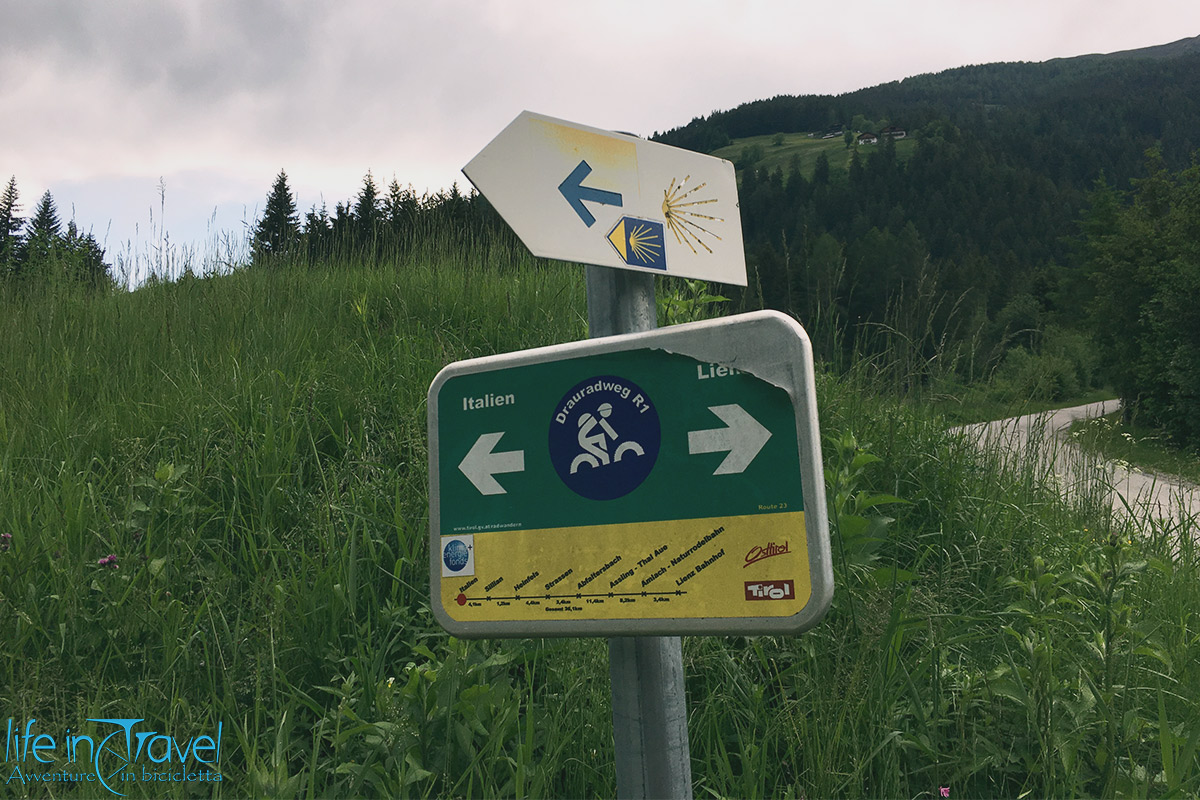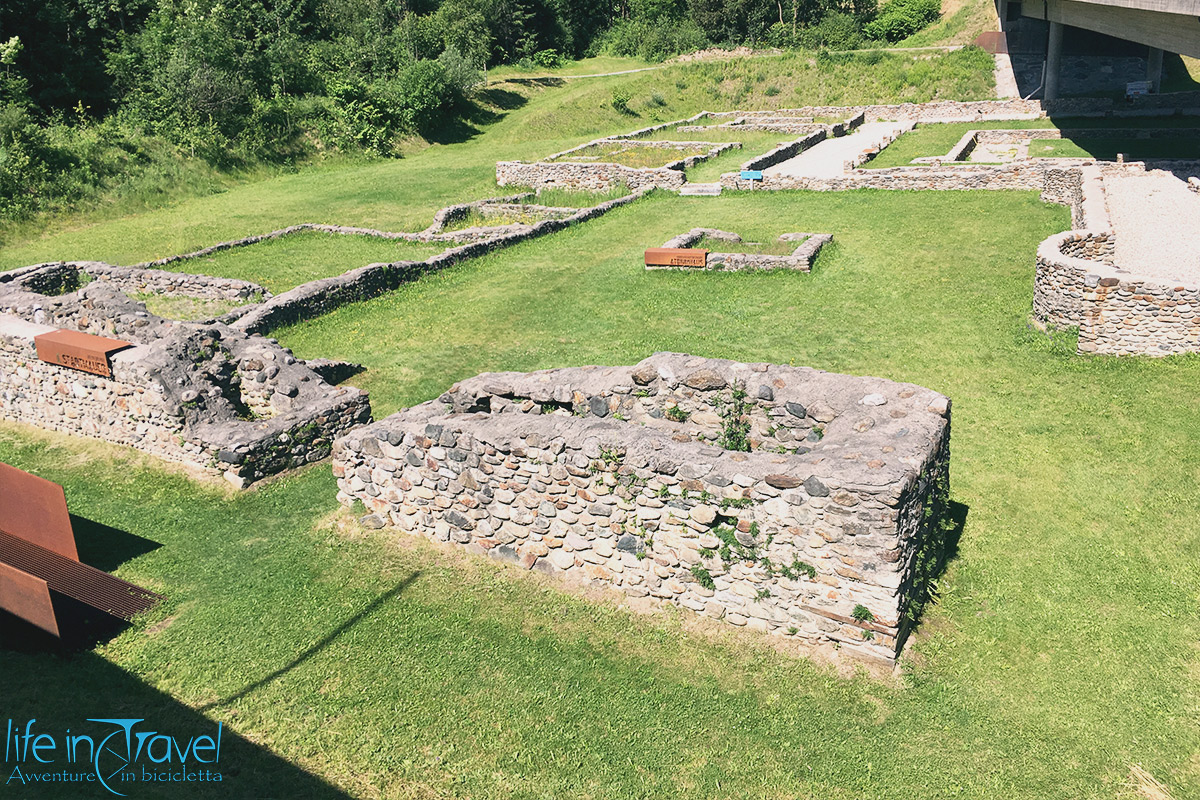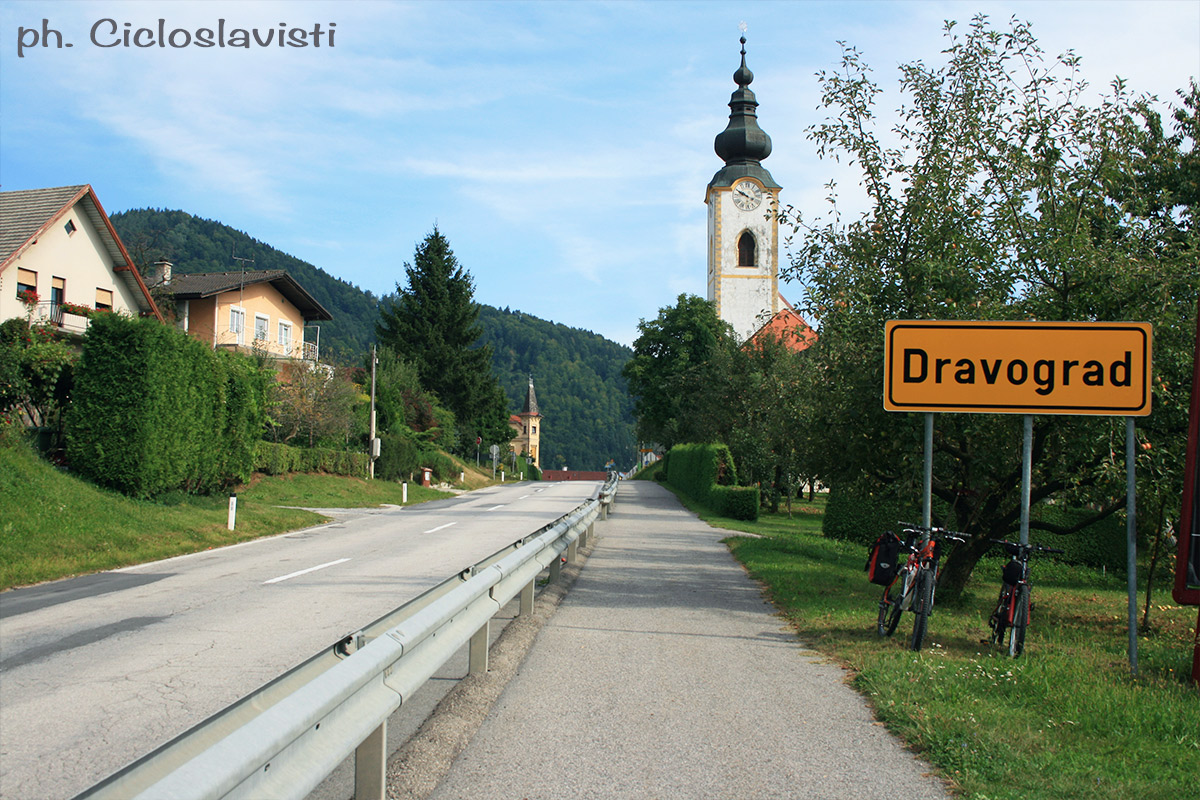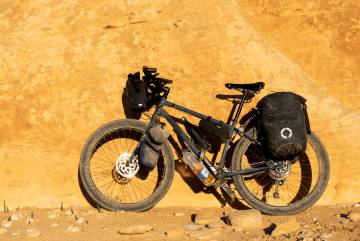Drau Cycle Path, from Toblach to Maribor by bicycle
A classic in bicycle touring, for beginners and for more experienced tourists who want to enjoy the spectacular views of Italy, Austria and Slovenia along this itinerary.
We're talking about the Drau Cycle Path, of course, from Toblach to Maribor!
Drau Cycle Path from Toblach to Maribor | Great as the first bicycle trip
Known as the Drau Cycle Path (but being actually a Cycle way because not exclusively only for bicycles), in Italian Ciclabile della Drava, in German Drauradweg, in Slovenian Dravski kolesarski poti, more easily signposted as R1, this bicycle way follows the river Drau (Drava or Drau), from Toblach in Pusteria Valley to Maribor and beyond, connecting Italy, Austria and Slovenia. The most cycled and known itinerary, on which we're focusing in this article, is for sure the Toblach-Maribor, but in time many renovations are taking place to include Croatia and Hungary and the border with Serbia, where the river reaches the Danube after 749 km.

The Drau Cycle Path from Toblach to Maribor, in a great variety of landscapes and definitely doable by anyone is a great starting point in bicycle touring, in terms of distances, elevation gain, services, cooking and sleeping facilities. Consider it if you're a noob or want to experiment bicycle touring: taking advantage of the Austrian thick bicycle touring net and of Carinthia's many services is for sure a good start in this type of vacation.

I myself chose it as very first challenge, reaching Toblach by train (or better, trains), cycling all the 366km to Maribor and getting back to Italy through Ljubliana-Trieste-Mestre. The services are excellent, the hosting is wanderful, the setting is spectacular... a special descent from the high peaks and green fields of Pusteria Valley, to the riverside of Carinthia and then the hilly Slovenia, crossing small villages and bigger cities rich in history and culture. All this by riding your bike, which can rest in peace and safely in the many bike-friendly structures along the way.

Drau Cycle Path from Toblach to Maribor | The itinerary
Let's start this journey, shall we?
The itinerary starts next to the train station in Toblach, near the garden of the Grand Hotel, 6km before San Candido. Many people might mix the Drau Cycle Path with a part of it, the busy San Candido - Lienz cycle path, literally full of cyclists, locals, families with children... so in this segment be careful! Here you can leave your car and start enjoying the view on the Tre Cime Natural Park in front of us. From this point you can choose to start the long Dolomites Way, connecting Toblach to Cortina and so Calalzo di Cadore. A huge column with info, illustrations and a detailed map will show you the right way and, without worrying about the traffic, you'll be starting the cycle path.

At first you get into the woods and then cross a big field where you have a great view on the Dolomites of Sesto. Then you'll be reaching San Candido, where you definitely have to visit the centre, then after some fast uphill segments, you'll reach Prato alla Drava and you officially cross the border (which doesn'exist) to Austria. The descent leads you to Sillian, small but pleasant village where you can see the castle of Heinfels. Once passed the temptation of the Loacker shop, where you can get a snack, the valley gets narrower and the San Candido - Lienz path runs next to the Drau, reaching always downhill Lienz, usually the first destination along the Drau Cycle Path.

After a visit of the so-called "pearl of the Dolomites", you'll be cycling next to the archeological site of Aguntum. After a while you'll cross Oberdrauburg (the city takes its name from the geographic area of the Ober Drautal, the High Valley of the Drau) and officially enter the Carinthia region, where a bridge and a big signpost will be welcoming you. The landscape is already very different from the previous one and leads you to Dellach, Berg im Drautal, Greifenburg and many more picturesque villages which you can cross or bypass, depending on the time you have.

The second stage of the Drau Cycle Path (as indicated on its official website) ends in Spittal an der Drau, big city with a colorful city centre, where you can relax in the park in front of the Porcia Castle.

Starting from here. you cross the Unterdrautal, the Low Drau Valley, touching Ferndorf, Weißenstein and Weißenbach. In this part of the Drau Cycle Path the landscapes transforms into an idyllic agricultural field net, only interrupted by the visit to the Carantana Museum in Molzbichl, an ancient population which lived here and took its name from the region Carinthia.

Without effort and the calm that this journey deserves, in less than 40km you can reach the colorful Villach - connected to the Alpe Adria Cycle Route - with its busy riverside, its bridge with European flags, the little strets of the centre with musicians playing along them and the big main square.

The next day you will be riding in the Rosental Valley, among the forests, the fields and the natural (Faaker See, Silber See, Wörthersee)or artificial lakes (near Feistritz and Ferlach), the castles and the hydroelecrtic power station. here the Drau gets wider, like a lake, and you almost get lost cycling for some km along what at the beginning was like a small rivulet.

Passed the dam and the artifical lakes you'll be enjoying a spectacular view, crossing the longest bridge on this itinerary and passing by Völkermarkt, which you'll reach by conquering one of the steepest and shortest climbs... Here you can take a look at the highway bridge crossing the lake.








Drau Cycle Path from Toblach to Maribor | The lakes variations
Weißensee
This is the "Tour de France" variation: just like this, it was presented to me by the owner of Hotel di Berg im Drautal when I told him about my desire to climb the road to Weißensee... Actually, it's a pretty demanding climb, short (4,5km) but leg-breaking, which from Greifenburg after some 12% and 15% peaks reaches the lake (literally white lake). Once reached the top of this great ascent, you'll be in Oberdorf and you'll have the possibility to enjoy the view, the colors of the lake, and the green vegetation around it. At first, you'll be on the left side of the lake, then you'll be crossing the bridge and ride on the right side of the Weißensee. Either way, if you don't want to get back on the climb and ride it back down the mountain, or choose the MTB small path, you'll have to get on the boat to reach the eastern lakeside and the road leading down in the valley, where you can cycle backward for a little while and reach Spittal and then follow the river on the main Drau Cycle Path. If you want to enjoy a mountain night, you can stop at the camping near the lake and watch the Austrian fjord.

Millstättersee
If you decided to face the first scary ascent to Weißensee and you came back to Spittal on the Drau Cycle Path, in order not to cycle down on it again, you can consider the Millstättersee variation: from Spittal an der Drau follow the tributary of the Drau called Lieser for a few km, then in Seeboden am Millstättersee start cycling on the lakeside towards the East until Döbriach, like Spittal and Seeboden on the Alpe-Adria Cycle Way. Thanks to this variation you can change for a while this segment of the Drau Cycle Path until Ferndorf, where you can connect to the original itinerary on the right side of the river and, by crossing the bridge, passing on the left side of the Drau.

Ossiachersee
Let's move on with our lake variations: once in Villach, the crucial center of this Austrian region, we can choose to ride a few km more by following the circumnavigation of the Ossiachersee. This variation will lead you a bit further away from the original itinerary and you'll have to join the last one, the Wörthersee variation. Like the previous case, you can choose the Southern or the Northern side of the lake, meeting in either solution Feldkirchen in Kärnten, to then get down on the original Drau Cycle Path and ride on the next lakeside towards Klagenfurt.

Wörthersee
This Wörthersee variations could be useful if you need to reach Klagenfurt, in order to visit it or you don't have time to complete the whole itinerary and decide to finish here your experience on the Drau Cycle Path, using this big connected city to get back by train. usually, the Drau Cycle Path runs a few km more South from this city and its lake, crossing the Rosental Valley and where the river becomes a big basin due to the presence of the dam in Ferlach. I personally don't know what to suggest, deserving Klagenfurt and this part of the Cycle Path a visit. Be the decision-maker! Either way, by passing by Klagenfurt or in the Rosental valley, you'll be following the river and then join the original itinerary in Völkermarkt.

On the original path or on the variations, in three, seven or ten days, alone, in a couple or with friends, with or without experience... The Drau Cycle Path is without a doubt a great bicycle tour you'll remember with pleasure!
- The landscapes and their changes throughout the itinerary, from the Tre Cime di Lavaredo overlooking Toblach to the austere Maribor, through the lively Carinthia;
- The cities of Villach, Spittal an der Drau, Lienz, Dravograd, Maribor, Völkermarkt and Klagenfurt;
- Cycling along the river or the lake, breathing the Nature;
- Sleeping next to the Drau, the river that follows us to the destination point, and listening to its pounding.
- How can I reach the Drau Cycle Path? The starting point of Drau Cycle Path, Toblach, is easily reachable by train (with bicycle transportation), but you can also consider to reach it by car and park in the city, where you can get back by train with the Austrian company OBB.
- When is the best period to cycle on the Drau Cycle Path? During all the year except for winter you can cycle on the Drau Cycle Path.
- What languages are spoken on this itinerary? On the Drau Cycle Path you can speak Italian in the very first section, then German in the middle one and Slovenian in the last section.
- If you carry some technology along, consider carrying a solar panel with you even if you can count on the many structures you’ll find on the way.
- The itinerary is very well designed and signeposted: in Italy follow thebrown signposts, in Austria thetypical green signposts with km from and to the last/next city, while in Slovenia the signposts are more rare andred.
- On this itinerary you can find many water sources, but also many markets and small shops.
- On this itinerary, especially in the most touristic cities, there are many hosting solutions for less than 20-25€ per person, but I think that this tour gets spicier if faced with a tent: many campings, especially in Austria (I recall the Falknerin Lienz, the Drauflussin Spittal, or the Juritz in Feistritz). Of course it’s clean, organized and cheap campings we’re talking about!
- One of the most spectacular places to sleep is the Manor Bukovje, a baroque castle on the Drau Cycle Path in the city of Dravograd, the very first big city in the Slovenian section of the trip.
- Attention: free camping in Austria is forbidden!
- The cooking on the Drau Cycle Path is pretty variegated: from the buttery dishes of Alto Adige to the repetitive cooking in Austria to end with the rich and savoury one of Slovenia.
- Just remember: opening and closing times are very short, especially in Austria, where at 7.30 P.M. a kitchen could close already.
- Every meal of mine was accompanied by a good local beer, but I also loved the Radler beer, fresh and energetic!
- The official Drau Cycle Path web portal, with precious info on hosting, stages and useful advices.
- The ÖBB website, the Austrian train company, to check availability, times and prices from and to Austrian cities by train.
- The Carinthian web portal, the biggest Austrian region crossed in this itinerary.
Log in with ( Sign Up ? )
or post as a guest
Be the first to comment.

Francesco G
ITA - Ho 33 anni e sono piemontese, anche se da qualche anno vivo e lavoro in Lombardia. Dopo un inizio da totale inesperto in questo campo, mi sono avvicinato al mondo dei cicloviaggi e della bicicletta sempre più. Oggi posso definirmi "cicloviaggiatore", e assieme all'altra mia passione - il videomaking - non mi fermerei mai! Cyclo ergo sum, pedalo quindi sono, per cercare di capire perché andare in bici sia così bello, terapeutico, ricco... E ogni volta che provo a capirlo, non ce la faccio, e sono costretto a ripartire sui pedali!
ENG - I'm from Piedmont and I'm 33 years old, I have been living and working in Lombardy for a few years. After a start without any competence in this field, I then approached the bicycle world more and more. Today I can call myself a bicycle traveller and videomaker who would never ever stop. Cyclo ergo sum, I cycle therefore I am. I ride my bike trying to understand why it is so beautiful, rich, therapeutic. And every time I try, I do not understand it. So I must leave again...
Latest from Francesco G
- Farewell Iohan Gueorguiev, you will always inspire us!
- The Oglio Greenway: cycling adventure from Tonale to Po
- Naturehike Cloud Up 2: my review of this bikepacking tent
- Bikepacking or Bike Touring? This is the question
- Best gravel handlebars and how to choose them
- Roswheel bags: Roswheel Tour Pannier Large review
























